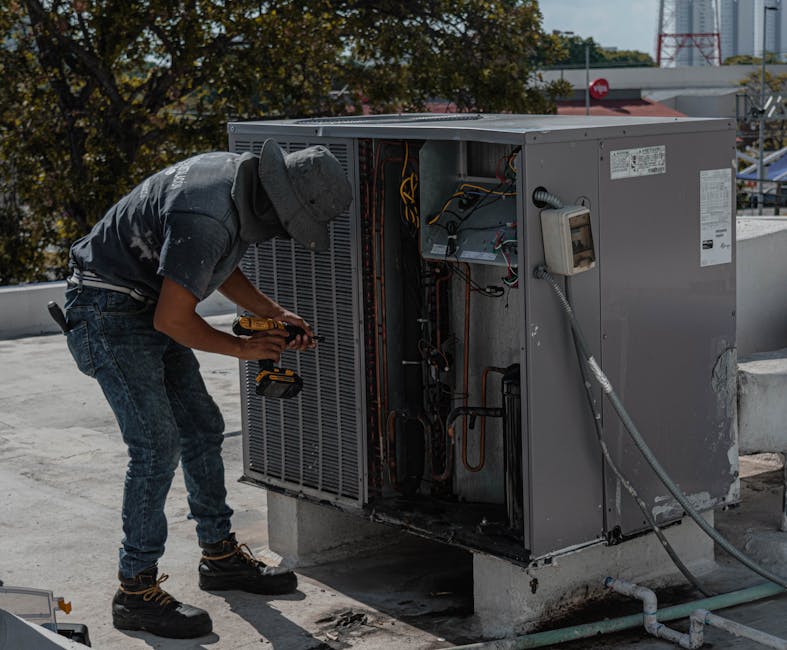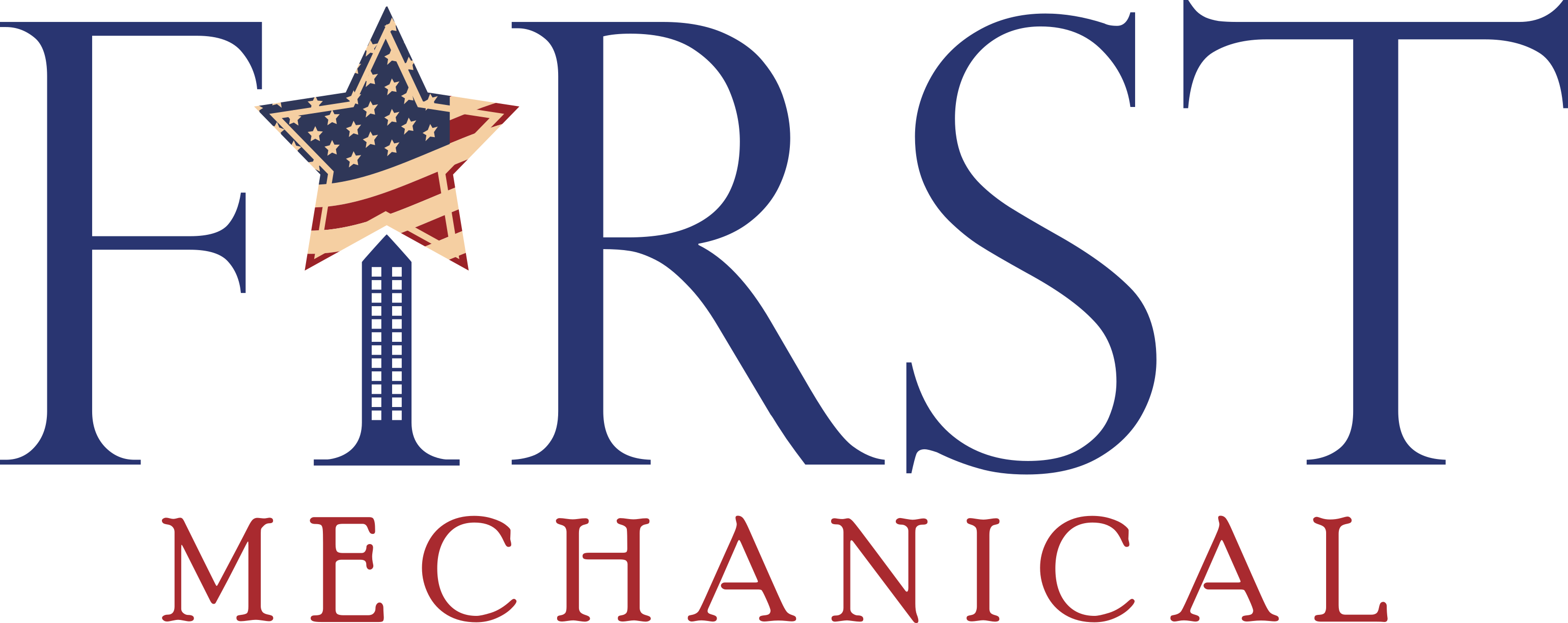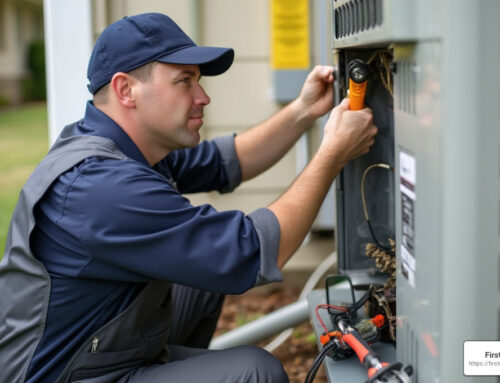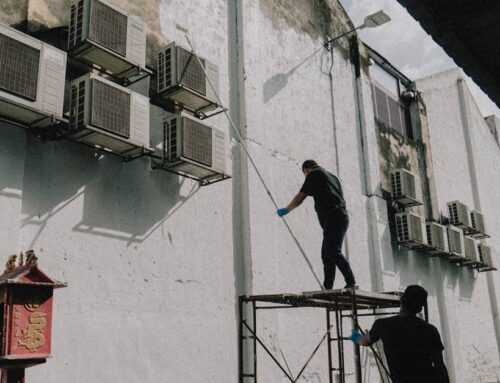
When your home gets uncomfortably warm, residential air conditioning repair is your lifeline to restoring comfort and efficiency.
- What is it?: Repair services for residential AC units involve diagnosing and fixing issues to ensure your system runs smoothly.
- Why you need it: Regular repairs prevent small issues from becoming major, costly problems, keeping your home comfortable and your energy bills in check.
- When to contact a pro: If your AC shows signs of trouble like inconsistent cooling or strange noises, it’s time to call in the experts.
An efficient HVAC system is crucial not just for comfort, but also for maintaining indoor air quality. The importance of proactive maintenance can’t be overstated, as it extends the life of your system and avoids disruption to your daily life. From handling thermostat glitches to ensuring optimal climate control, professional repair services keep your system at peak performance year-round.
Common AC Problems and Solutions
Even the most reliable air conditioning systems can encounter issues. Here are some common problems and practical solutions to keep your AC running smoothly.
Thermostat Issues
Problem: A faulty thermostat can lead to inconsistent temperatures and discomfort. It might not respond to settings or display incorrect readings.
Solution: Start by checking the batteries and ensuring they are installed correctly. If the problem persists, recalibrate the thermostat or consult a technician to examine wiring connections. Upgrading to a programmable thermostat can also improve efficiency and control.
Compressor Problems
Problem: The compressor is the heart of your AC system. If it fails, your unit won’t cool effectively. Common signs include strange noises or the system not turning on.
Solution: Regular maintenance is key. Ensure the compressor receives adequate airflow and is free from debris. If you notice unusual sounds or performance issues, contact a professional to inspect and repair or replace the compressor as necessary.
Evaporator Coils
Problem: Evaporator coils can freeze, limiting your AC’s ability to cool your home. This often results from restricted airflow or low refrigerant levels.
Solution: Check and replace air filters regularly to maintain proper airflow. If freezing occurs, turn off the system to allow the coils to defrost. Persistent issues may require a technician to check for refrigerant leaks or other underlying problems.
Clogged Filters
Problem: Dirty or clogged filters restrict airflow, reducing efficiency and potentially causing the system to overheat or freeze.
Solution: Replace filters every 1-3 months, depending on usage and filter type. This simple maintenance task can prevent larger issues and improve air quality.
By understanding these common issues and their solutions, homeowners can take proactive steps to maintain their air conditioning systems. Regular maintenance not only extends the life of your unit but also ensures a comfortable and energy-efficient home environment.
Diagnosing Residential Air Conditioning Issues
When your air conditioner isn’t performing as expected, diagnosing the problem is the first step towards a solution. Here’s how you can troubleshoot some common issues:
Troubleshooting Basics
Begin with a simple inspection. Check if the circuit breakers have tripped. This is a common reason for an AC unit not turning on. Resetting the breaker might be all that’s needed to restore function.
Next, inspect the air filters. Dirty or clogged filters can severely restrict airflow, causing the system to work harder and less efficiently. Regularly replacing filters every 1-3 months can prevent many problems.
Checking Refrigerant Levels
Low refrigerant levels can lead to poor cooling performance and even damage the system. Signs of low refrigerant include ice buildup on evaporator coils and hissing noises near the refrigerant lines.
If you suspect a refrigerant issue, it’s best to call a professional technician. They can safely check the levels, repair any leaks, and recharge the system. Handling refrigerants requires special equipment and expertise due to environmental regulations.
Advanced Troubleshooting
If basic checks don’t resolve the issue, consider other potential problems like thermostat malfunctions or more complex electrical issues. A faulty thermostat might display incorrect readings or fail to respond to settings, affecting your AC’s performance.
While some troubleshooting steps are straightforward, others might need professional intervention. Regular maintenance by a qualified technician can help identify and fix issues before they escalate, ensuring your air conditioning system operates smoothly and efficiently.
Residential Air Conditioning Repair
Keeping your residential air conditioning system in top shape is essential for comfort and efficiency. Let’s explore maintenance, repair costs, and the role of service technicians in ensuring your AC unit runs smoothly.
Importance of Regular Maintenance
Regular maintenance is crucial for preventing unexpected breakdowns and extending the lifespan of your AC unit. A well-maintained system not only performs better but also uses less energy, saving you money on utility bills. Scheduled tune-ups typically include:
- Cleaning or replacing air filters
- Checking refrigerant levels
- Inspecting electrical components
- Lubricating moving parts
These routine checks help catch minor issues before they become major problems, ensuring your air conditioner operates efficiently throughout its lifespan.
Understanding Repair Costs
When your air conditioner needs repairs, understanding the associated costs can help you make informed decisions. Repair costs can vary widely depending on the issue. Common repairs include:
- Thermostat replacement: A malfunctioning thermostat can lead to uneven cooling and higher energy bills.
- Compressor repairs: The compressor is the heart of your AC system, and its repair or replacement can be costly.
- Evaporator coil cleaning: Dirty coils can reduce efficiency and increase energy consumption.
On average, homeowners might spend anywhere from $150 to $500 on typical repairs, but costs can increase for more complex issues. It’s essential to weigh repair costs against the potential benefits of a new system, especially if your unit is older or requires frequent repairs.
Role of Service Technicians
Service technicians play a vital role in keeping your air conditioner running smoothly. These professionals have the expertise to diagnose issues accurately and perform necessary repairs safely. When selecting a technician, consider the following:
- Experience and credentials: Look for technicians with proper licensing and certifications to ensure quality service.
- Customer reviews: Positive reviews and recommendations can provide insight into a technician’s reliability and professionalism.
- Transparent pricing: Choose a company with a clear pricing model to avoid unexpected charges.
A trusted technician not only fixes current issues but also offers valuable advice on maintaining your system for optimal performance.
In summary, regular maintenance, understanding repair costs, and choosing the right service technicians are key components of effective residential air conditioning repair. By staying proactive, you can ensure your home remains comfortable and energy-efficient year-round.
Impact of Climate on AC Performance
Humidity’s Role in AC Efficiency
In areas with humid climates, such as those experienced in many parts of the United States, high humidity can significantly impact residential air conditioning repair needs and overall performance. When humidity levels rise, your air conditioner has to work harder to remove moisture from the air. This extra workload can lead to:
- Longer run times: The AC runs more frequently to maintain comfort, leading to increased wear and tear.
- Higher energy use: More energy is consumed as the system works overtime to dehumidify and cool your home.
Uneven Cooling Challenges
Humidity isn’t just about energy consumption; it can also cause uneven cooling in your home. If your AC system struggles to handle excess moisture, you might notice:
- Warm spots in rooms: Some areas may feel warmer than others due to uneven air distribution.
- Inconsistent temperatures: The system may cool some rooms efficiently while others remain uncomfortable.
This issue often arises when the AC system is overtaxed by humidity, leading to less efficient air distribution throughout the home.
Managing Energy Use
To combat the effects of humidity and ensure efficient AC performance, consider these tips:
- Regular maintenance: Keep your system in top shape with routine checks and cleaning.
- Upgrade insulation: Proper insulation can help maintain consistent indoor temperatures.
- Use a dehumidifier: This can reduce the strain on your AC by removing excess moisture from the air.
By understanding the impact of climate on your AC, you can take proactive steps to improve performance and reduce energy costs. This ensures your home remains comfortable and energy-efficient, even during the muggiest months.
Frequently Asked Questions about Residential Air Conditioning Repair
Why is my air conditioner running but not cooling the house?
If your air conditioner is running but not cooling, several components could be at fault. Thermostat issues are common; a malfunctioning thermostat might not correctly signal the AC to cool the air. Check if the thermostat is set to the correct temperature and mode.
Another possible culprit is the compressor, which is essential for circulating refrigerant and removing heat. If the compressor is faulty, it won’t effectively cool your home.
Evaporator coils can also cause problems. If they are dirty or frozen, they won’t absorb heat efficiently, leading to inadequate cooling. Regular maintenance can prevent these issues by keeping coils clean and functional.
What is the average life of a home air conditioner?
The lifespan of a home air conditioner typically ranges from 10 to 15 years. However, several factors can influence this:
- Usage: Frequent use, especially during hot months, can shorten the lifespan.
- Insulation: Homes with poor insulation may require the AC to work harder, reducing its longevity.
- Regular maintenance: Routine check-ups and timely repairs can extend the life of your unit.
By understanding these factors, homeowners can make informed decisions about their AC systems and plan for eventual replacements.
How much should it cost to replace an air conditioner?
Replacing an air conditioner involves various costs, which can vary based on multiple factors:
- Replacement costs: The price of a new AC unit can range from $3,000 to $7,000, depending on the size and efficiency.
- Ductwork: If your existing ductwork needs repair or replacement, it can add to the overall cost.
- Contractor fees: Professional installation is crucial for optimal performance, and fees can vary based on experience and location.
It’s essential to obtain quotes from multiple contractors to ensure competitive pricing and quality service. Proper planning and budgeting can help manage these expenses effectively.
Conclusion
At First Mechanical, we understand the importance of reliable HVAC services for maintaining a comfortable home environment. Our team is committed to providing custom solutions that meet your specific needs, ensuring that your air conditioning system operates efficiently throughout its lifespan.
Whether it’s routine maintenance, emergency repairs, or a complete installation, we prioritize customer satisfaction and transparency in all our interactions. Our service technicians are trained to diagnose and resolve issues quickly, minimizing downtime and inconvenience for you.
We believe in the power of preventive maintenance. Regular check-ups can not only extend the life of your air conditioner but also keep it running efficiently, saving you money on energy bills. Our transparent pricing model and flexible financing options make it easier for you to plan and manage these services without hidden surprises.
If you’re considering upgrading or replacing your AC unit, our experts can guide you through the process, helping you choose the best system for your home. We offer competitive pricing and ensure that all installations comply with local building codes, providing peace of mind and long-term satisfaction.
For more information on how First Mechanical can help with your residential air conditioning needs, visit our service page and book a consultation today. Let us be your trusted partner in achieving optimal climate comfort in your home.













